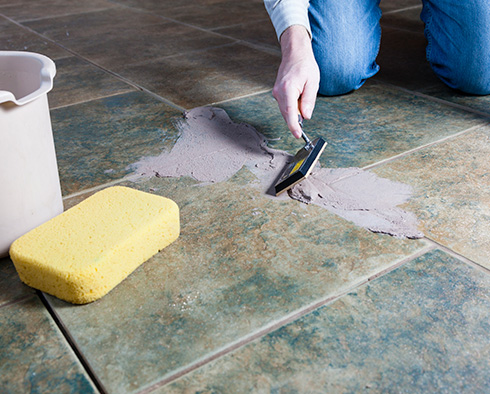Why Does Marble Shine, and How Does Stone Polishing Work?
October 17, 2023
Marble is a very luxurious building material – when it's shiny. When it's dull, it creates an antiquated, dirty look that can ruin the glamorous appearance of your floors.
Many home and property owners are bombarded with challenging winters, and oftentimes, keeping your marble surfaces shiny can seem impossible. This is mostly due to the abrasives that come in contact with them, such as salt, snow, and acids.
People Ask: Why Does Marble Shine, and How Does Stone Polishing Work?
The answer to dull marble is simple: it's about finding a good stone polishing service. What happens actually to make marble dull? For that, we'll have to consult the science books:According to Geology.com, marble is a metamorphic rock. What that means is that it was exposed to extreme conditions under the Earth's surface. It is a non-foliated rock, which means that it does not have a layered appearance.


These two facts dictate the overall appearance of the rock. To dive into the meat of the issue, most marble is composed of limestone, the main ingredient of which is calcium carbonate.
Calcium carbonate is susceptible to interactions with most cleaners that can result in damage to the stone's finish… but we're getting ahead of ourselves. Let's start with the shine itself.
Why Does Marble Shine?
Marble shines when it has a very smooth surface. The surface enables light to reflect off of it. The higher the level of shine, the clearer the reflection on the stone.
The reason for this is that light stays together when it reflects, and each ray bounces in the same direction.
However, when a marble surface is dull, it is also rough and scratched. This uneven surface causes the light to refract and gives the appearance of a non-reflective, dirty surface.

Dull marble becomes shiny through the process of honing and polishing. Stone honing is basically a method of buffing the stone, and creating a new surface that is more even. Once honed, marble has a matte finish.
That matte finish is very scratch-resistant, because it is not glossy, so no reflection is obvious when light shines on it.
However, if left unsealed, honed marble will soak liquids very easily, and in either case, liquids should be wiped up immediately to avoid staining.


If a customer decides he or she wants a shiny, glossy finish, the next step is to polish the stone. Stone polishing works by using fine grit. We gently shine the surface until it reaches a high polish.
Polished marble is most popular on countertops and bathrooms, where it makes contact with fewer abrasives. It is still susceptible to scratching and liquids, so all liquids should be wiped up immediately.
How to Keep Marble Shiny
You have to be very careful with your marble. Both finishes should be sealed, and even after sealing, there is regular maintenance that will help you keep your marble in the best shape possible.
First, there are many household substances that your marble maybe exposed to. These liquids should immediately be wiped up to avoid staining and damage to the seal or the stone beneath it.
These include fruit juice, sodas, alcohol, coffee, tea, butter, vinegar, makeup, salad dressing, and tomatoes or tomato-based products. Always wipe these up immediately with a clean, dry cloth.

If you are cleaning the stone, make sure you're using a pH-neutral cleaner. Alkaline and acidic cleaners can damage and stain your marble and damage the seal, leaving your marble vulnerable to future spills.
Therefore, if your marble or other stone surfaces look dull, dirty, or not shiny, then it's time for a stone cleaning, honing and/or polishing service. Give us a call today at (704) 270-2348 and we'll provide you with a free evaluation of your marble and stone surfaces!







